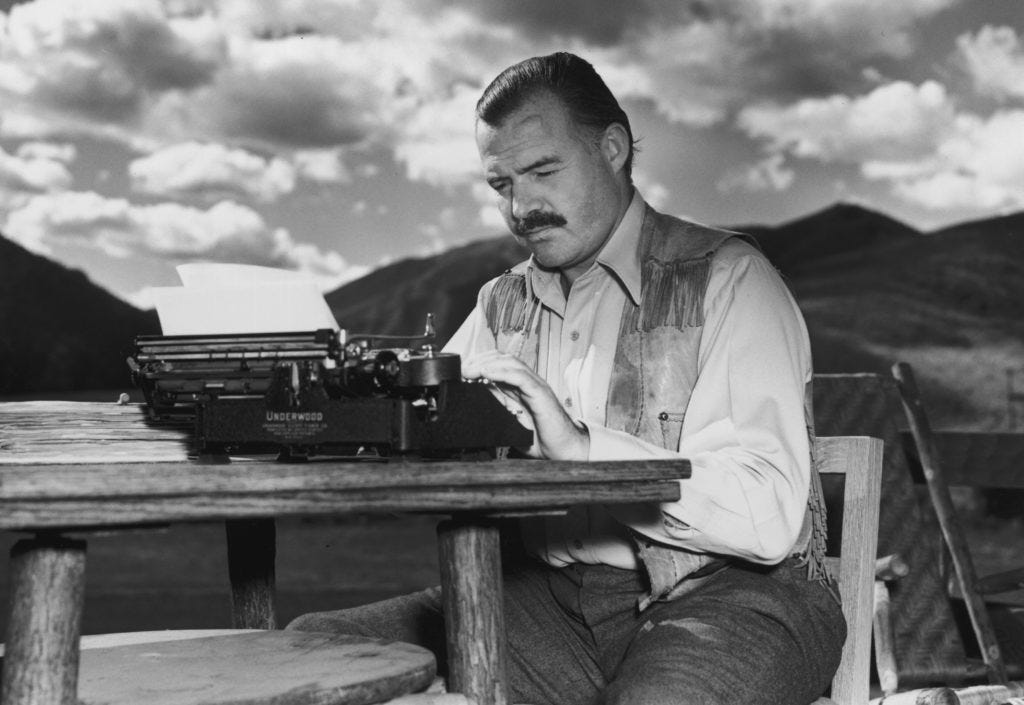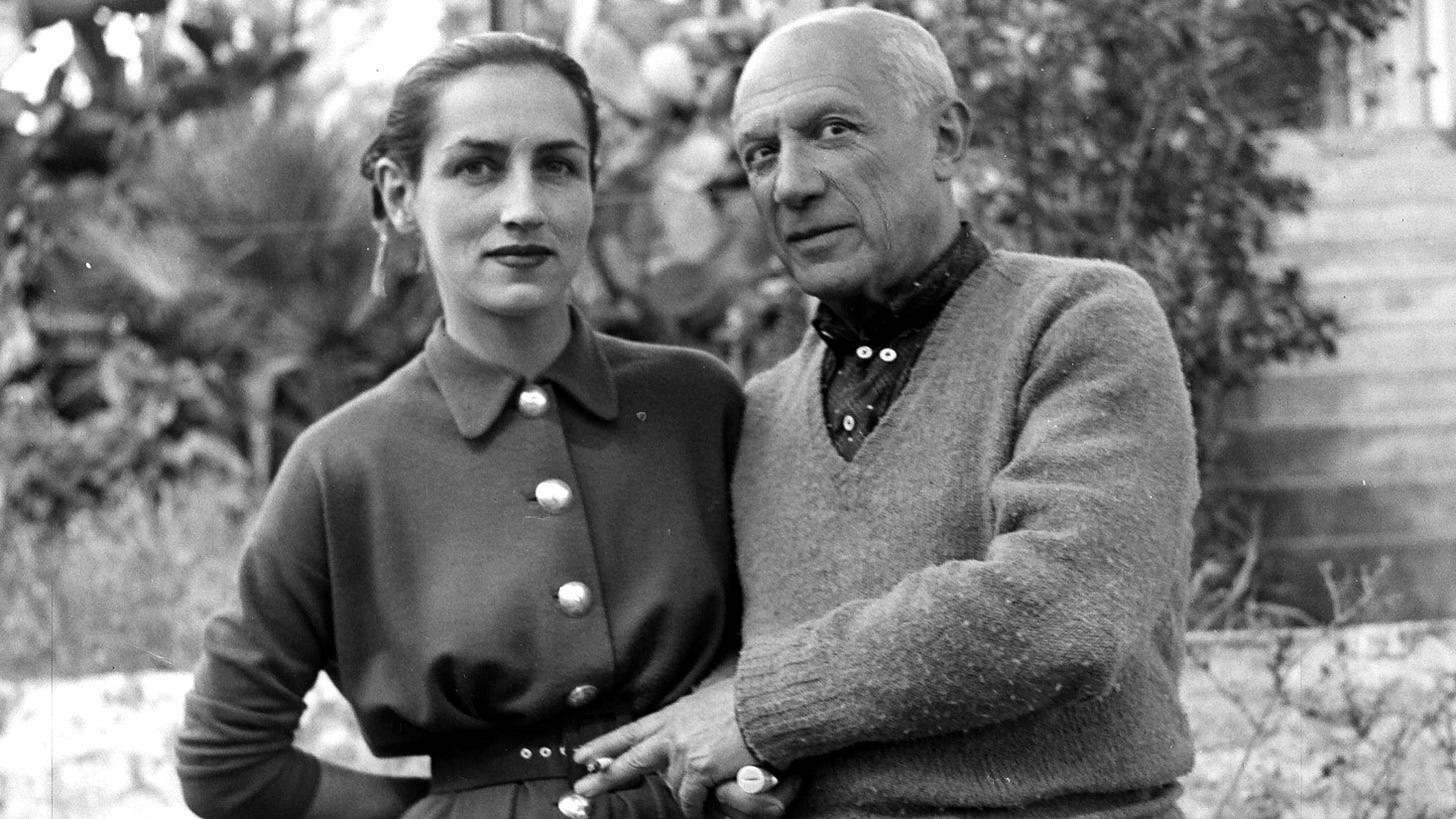Could Hemingway be cancelled?
The writer is, to put it mildly, not of this moment....
I love Hemingway. I love the way he writes and I admire his ear and mind. The music of his prose. He knew dialogue and he could get inside the minds and souls of men and women as few writers can.
I very much looked forward to watching the PBS three-part series by Ken Burns and Lynn Novick about the great man. I’m not quite finished but I was not surprised by most of it because I’ve read about Hemingway for years. Still, the series is fascinating to watch. There’s nothing quite like seeing the streets of Paris from the 1920s teeming with life to make one wish they had been born earlier and could have sat with Hemingway and his pals at Gertrude Stein’s studio.
The series also has a lot of footage of bullfighting and the running of the bulls in Pamplona, activities that Hemingway loved. So did Picasso by the way. I guess there’s nothing quite like being chased through narrow cobble-stoned streets by a fully-grown bull to make you feel alive.
But the films of bullfighting in the PBS series bring into vivid focus how cruel it is, as does the voiceover reminding viewers that the ultimate point of bullfighting is for the bull to be killed. In one particularly horrifying piece of film, we see the bull bleeding severely before falling onto its side after being stuck by the matador. It is sickening and yet, Hemingway and Picasso both loved it and matadors were their heroes. (Bullfighting is still legal in parts of Spain and Portugal.)
The series also features still photos of Hemingway proudly posing with all the big game (hippos, antelope, lions) he killed in Africa. And there are a lot of photos showing Hemingway smiling broadly with rifle in hand, big game at his feet. In at least one famous photo, an African native is standing nearby, almost as a prop.
Hemingway was the apotheosis of machismo culture. He treated women as disposable, going from one wife to the next when he grew tired of them. He loved to box and fight and challenge others.
And that’s not all. His first novel “The Sun Also Rises” is considered a masterpiece and put the spotlight on the so-called “lost generation” but some would argue it is anti-Semitic and racist. Hemingway’s Jewish character Robert Cohn is held up to ridicule and considered weak by Jake Barnes, Hemingway’s alter-ego in the novel. The N-word is used in some chapters.
There’s no doubt Hemingway was a man of his time and many admired him not just for his writing but for his exotic adventures. He was a man’s man in early and mid-20th century America.
But what about now? Hemingway was born in 1899 and “The Sun Also Rises” was published in 1925. It will have its’ 100th anniversary in 2025 and I’m sure some are writing books now in anticipation of that anniversary.
Given how many others have been cancelled in today’s environment, one has to wonder about Hemingway. With the series and the 100th anniversary looming, will we see the day when the books by one of the finest writers, if not the finest writer, of the 20th century be banned and pulled by his publisher? It’s hard to imagine but there are a lot of things happening in our society now that would have been hard to imagine not too long ago.
And once again, all of us will have to decide if one can separate the man from the artist. Great artists have great flaws but does that mean they should be shunned by society? For some, there is no question but that they should be cancelled including Hemingway and Picasso. The greatest painter of our time had man of the same flaws, as is evident throughout “Life with Picasso” the memoir by his wife and former mistress Francois Gillot.
Personally, I’ll always admire the works of both men. I too am a product of my time and I’m not turning my back on two great artists who had a huge impact on my own cultural awakening. Something changed in me after reading “The Sun Also Rises” and “A Moveable Feast.” And I’ll never forget the day I stood in front of “Guernica” by Picasso. Those memories can never be cancelled from my mind.






Valid observations. But I have a problem with the phrase a man of his time. It provides some cover to the inexcusable and irreprensible behavior. At the same time Hemingway was macho blowing away creations of nature and applauding the bullfighting rituals, there were also men, and women of his time calling out such destruction. They just were in the cultural minority and relatively voiceless.
I understand but also not in the least moved or impressed with the allure of the flawed, impolite but talented artist.
You can be talented and also a decent human being who treats others well.
No doubt. Hemingway was a fascinating, great writer who influenced many. He was also a narcissistic, insecure asshole.
The series only confirmed what I already knew.
I prefer the LaRosas of the world. Just spell my name right on the check for this shameless plug Paul.